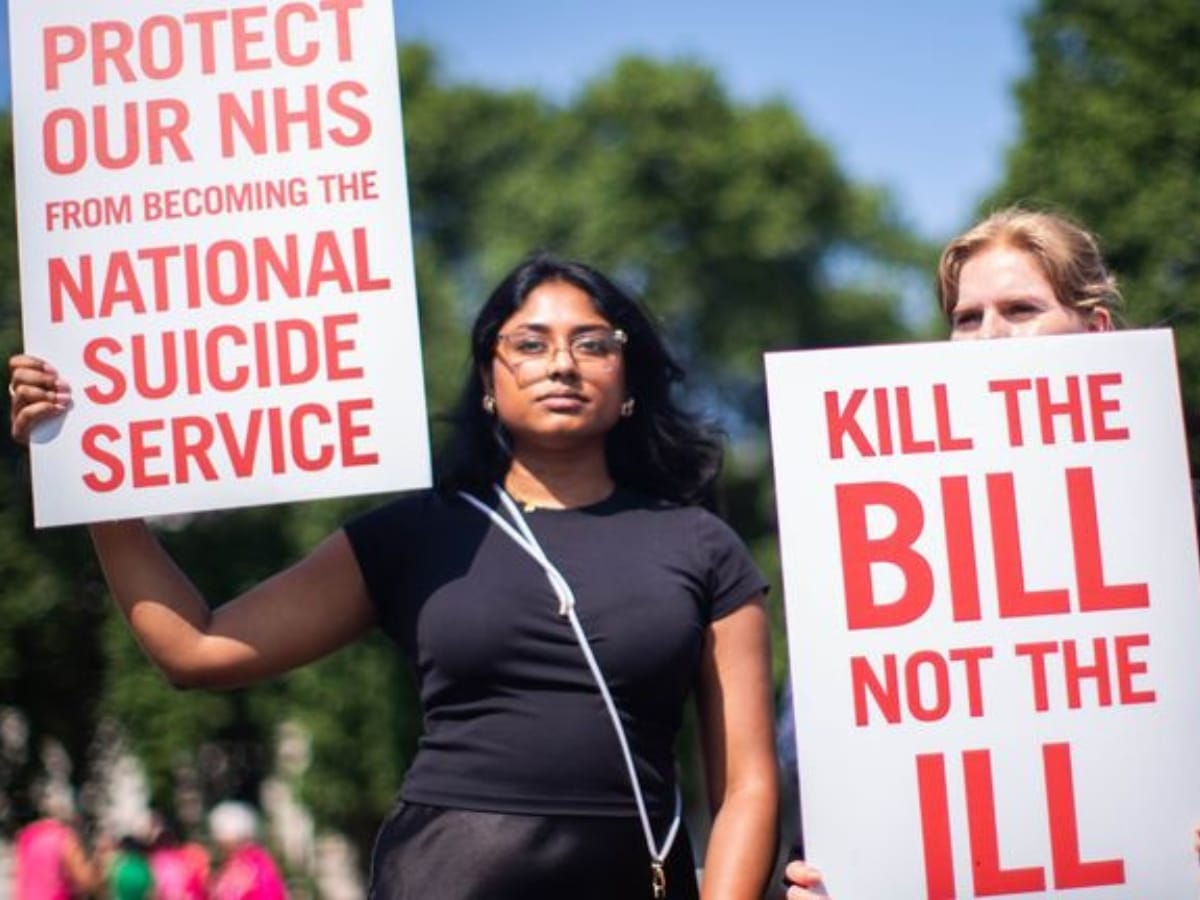While it was smooth-sailing for Kim Leadbeater’s assisted dying bill through the House of Commons, peers are now scrutinising the controversial legislation in the way elected members of parliament utterly failed to do.
On 11 September, the House of Lords Select Committee on the Constitution issued a damning report pinpointing the numerous shortcomings MPs baked into the bill.
Assisted dying bill: more scathing criticism in another committee report
One of its most scathing criticisms revolved around the assisted dying bill’s impact assessments. Specifically, it pointed to the fact that the government, though not the sponsor of the bill, issued impact assessments “late during the Commons process”. It stated that the “degree of deliberation, assessment and scrutiny is therefore significantly less” than it would expect for an equivalent government bill. Moreover, it noted how this was:
especially concerning given the subject matter of the bill.
In short, the process didn’t give MPs long to scrutinise the impacts the bill could have on marginalised communities.
Next to this, it suggested that:
the House may wish to consider any possible implications for human rights law.
Though noticeably more tempered than some of its other reproaches over the bill, it was basically stating that the House of Commons didn’t consider the human rights law implications of the bill sufficiently.
It also drew attention to the unchecked use of ‘delegated powers’. The report highlighted that the bill sponsor and supporters added many of these “in the latter stages”. The first it highlighted was Clause 41. This tasks the government’s health secretary with ensuring assisted suicide services are available to patients in England. Parts of the clause enable the health secretary to make regulations around building assisted suicide provision into existing NHS services. The committee quoted a report by the Delegated Powers and Regulatory Reform Committee’s (DPRRC). This lambasted how the clause gave ministers:
almost unlimited powers to legislate in that area by statutory instrument.
Another, Clause 48, sets out that the Voluntary Assisted Dying Commissioner must appoint a Disability Advisory Body. However, the committee said there was a “lack of detail” about what exactly this body would entail. It pointed out there’s no information about what its role would be. The lack of detail was a common criticism across the other clauses it highlighted.
Lords with lived experience speak out
The committee published this ahead of the Second Reading in the Lords on the 12 and 19 September.
Already, in the first session on 12 September, peers expressed significant doubts and concerns over the safety of the assisted dying bill.
Conservative peer Stuart Polak spoke from personal experience of doctors diagnosing him with only six months to live. In particular, he challenged the claim that a six-month prognosis is an adequate safeguard for assisted suicide, stating:
I speak as someone who was given six months to live 37 years ago.
Fellow Conservative peer and former attorney general Victoria Prentis spoke of her recent diagnosis of an aggressive form of cancer. She poignantly acknowledged her “advantages” in support and access to health care. But she said she still holds fears of being a burden to her family:
There have been some very low moments in the past few weeks. When I’ve realised the burden I am to my family, who are currently arguing who should take next week off to look after me.
Prentis added that she:
watched that final debate in the Commons, and what struck me was that woman after woman, ethnic minority after ethnic minority, disabled people, stood up and said ‘this bill is not good enough for my vulnerable community.
She compelled the House to:
Think about the vulnerable and how easy it is for them to feel that their lives are not worth living.
Echoing this, Conservative peer Rosamund Monkton, whose daughter Dominique lives with Down’s syndrome, talked of unified opposition from a coalition of over 350 Deaf and Disabled People’s Organisations (DDPOs).
Meanwhile, disabled crossbench peer and former Paralympian Tanni Grey-Thompson warned that in Oregon, assisted suicide law keep expanding. The state there has removed the 15-day wait, scrapped residency rules, and widened the “terminal” definition.
Others like crossbench peer Ajay Kakkar and former Labour health minister Philip Hunt raised concerns over funding. Specifically, they voiced worry that the funding for assisted suicide would come out of the budget for palliative care.
House of Lords: right to reject it
Pro-assisted suicide proponent and Labour peer Charlie Falconer has argued it is not the role of the Lords to reject this bill. This is despite the fact that he has voted against numerous bills with Commons approval.
In an interview on the BBC’s Today programme after the Leadbeater assisted dying bill narrowly passed Third Reading in June, the presenter asked him whether the role of the Lords was to:
ultimately uphold something that the directly elected members of the Commons have decided to go ahead with.
He replied: “that’s correct”.
However, the Committee on the Constitution’s new report has made clear that the House of Lords has every right to scrutinise, amend, or ultimately reject the bill if it finds it not fit for purpose.
It’s notable that just as peer Prentis pointed out about the Commons debate, it was chronically ill and disabled peers once again speaking out and amplifying the voices of communities the bill poses the biggest risks to.
What’s clear from the report is that everything these communities have warned about the bill is precisely right. The bill and its sponsors played lip-service to listening to disabled people’s concerns – and the report only emphasises this. When a moderate committee focusing on constitutional matters dredges up issues around “possible human rights implications” and “unlimited powers”, it’s a damning indictment of a bill with alarming potential for harm.
Of course, it’s shameful it has come to this. Marginalised people shouldn’t have to rely on the unelected House to prevent harm from legislation to their communities. However, thanks to MPs ignoring chronically ill, disabled, poor, and racially minoritised voices speaking out against the bill, it’s where we’re at.
Featured image via the Canary













